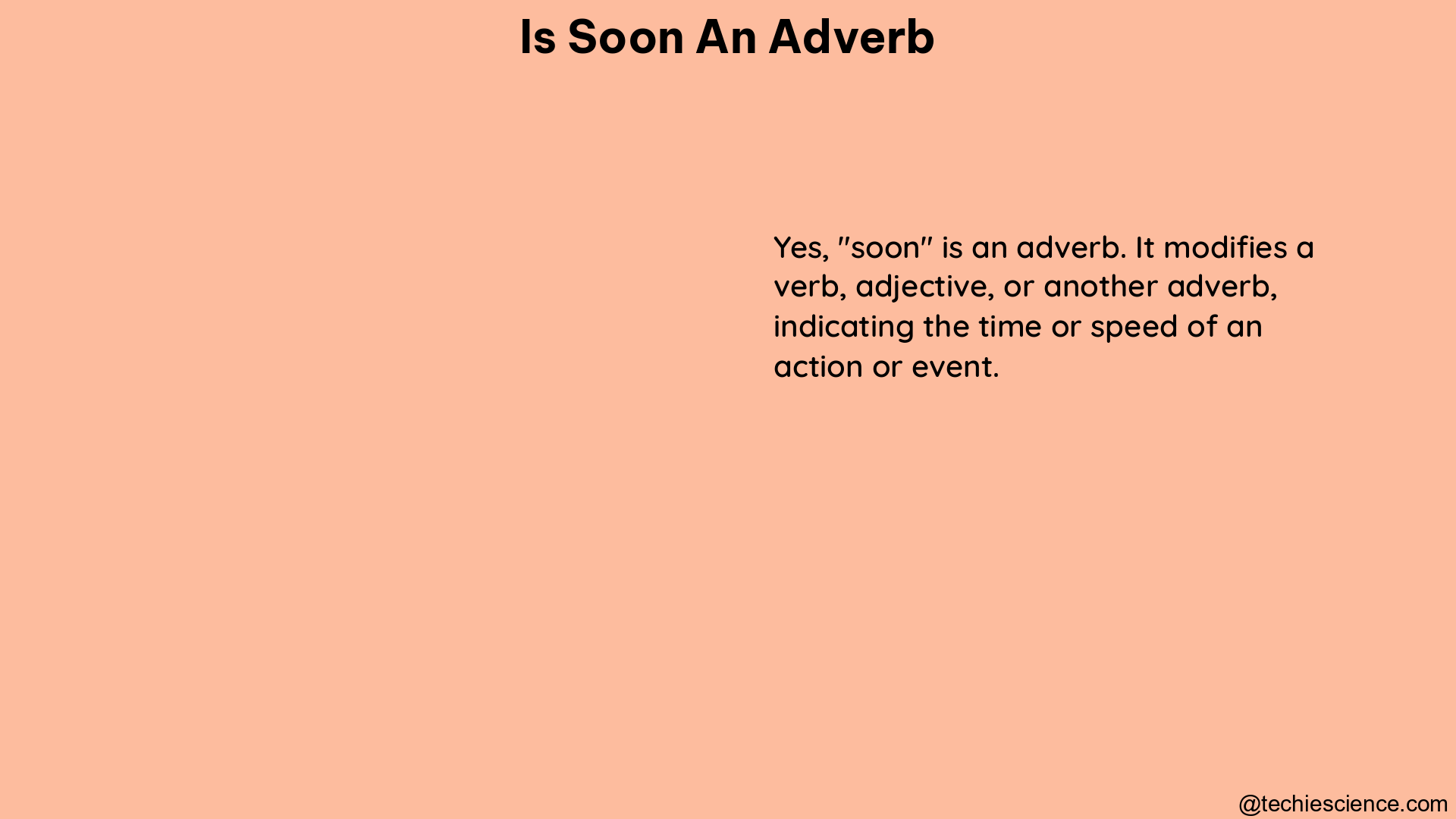Yes, “soon” is an adverb. It is used to indicate that an action or event will occur in a short time from now or immediately after another event. Here’s a comprehensive guide with advanced details and examples on the usage of “soon” as an adverb.
Grammatical Specification
Usage
“Soon” can be used to indicate that an action or event will occur in a short time from now or immediately after another event. It establishes a temporal relationship between two events, suggesting that one will happen shortly after the other.
Forms
The comparative and superlative forms of “soon” are “sooner” and “soonest,” respectively. These forms are used to compare the timing of different events or actions.
Idioms
“Soon” is used in various idiomatic expressions, such as:
– “as soon as possible”
– “the sooner the better”
– “sooner or later”
– “no sooner said than done”
These idiomatic expressions add nuance and emphasis to the timing of events or actions.
Examples

In a Short Time from Now
- We’ll be home soon.
- She sold the house soon after her husband died.
These examples demonstrate how “soon” can be used to indicate that an event will occur in the near future.
Immediately After Another Event
- I soon realized the mistake.
- It soon became clear that the program was a failure.
In these cases, “soon” suggests that the second event occurred immediately following the first.
Comparative and Superlative Forms
- How soon can you get here?
- The sooner we set off, the sooner we will arrive.
The comparative and superlative forms of “soon” allow for more precise comparisons of timing between different events or actions.
Idiomatic Expressions
- We’ll deliver the goods as soon as we can.
- The sooner the better.
- Sooner or later you will have to make a decision.
These idiomatic expressions using “soon” add nuance and emphasis to the timing of events or actions.
Theoretical Explanation
Temporal Relationships
As an adverb, “soon” establishes a temporal relationship between two events, indicating that one event will occur shortly after another. This temporal relationship is a key aspect of the adverbial function of “soon.”
Adverbial Function
“Soon” modifies verbs to indicate the timing of actions or events. It provides information about when an action or event will take place, relative to another action or event.
Advanced Details
Negative Sentences
“Soon” can be used in negative sentences to refer to the near future, as in “Will she be back anytime soon?”
Preferential Expressions
“Soon” is used in preferential expressions like “I’d just as soon stay at home as go out tonight” to indicate equal preference for two options.
Formal and Informal Usage
“Soon” can be used in both formal and informal contexts, with variations in idiomatic expressions and sentence structure.
Reference Links
- https://www.oxfordlearnersdictionaries.com/us/definition/american_english/soon
- https://www.merriam-webster.com/dictionary/soon
- https://www.dictionary.com/browse/soon
Hey! I am Arpita Bose Roy. My qualifications are M.A. in English with B. Ed. in both general education and special education. I have 2 years of experience as a “language analyst” at IIT Kharagpur and 4 years of experience as an “Academic Content Developer” at IIT Kharagpur. Currently, I am working as an academic writer at Lambdageeks.